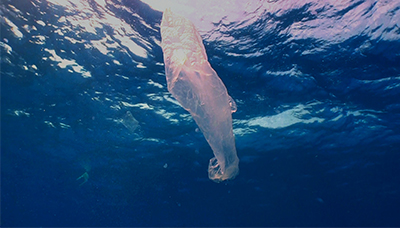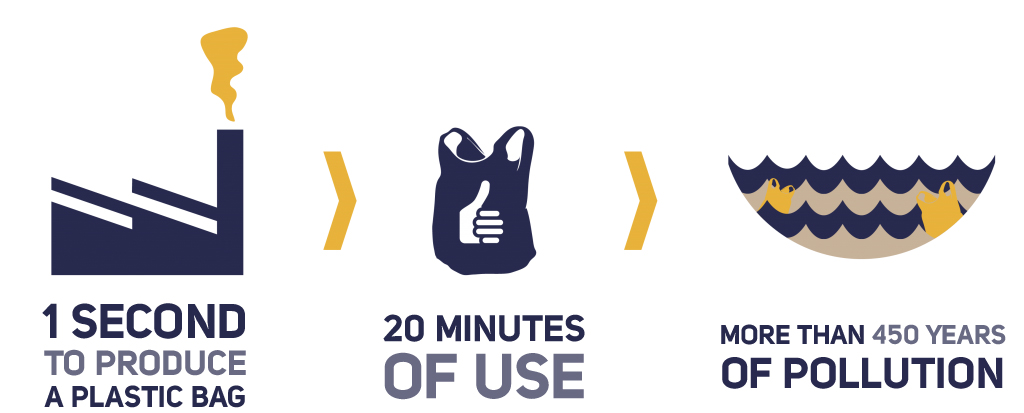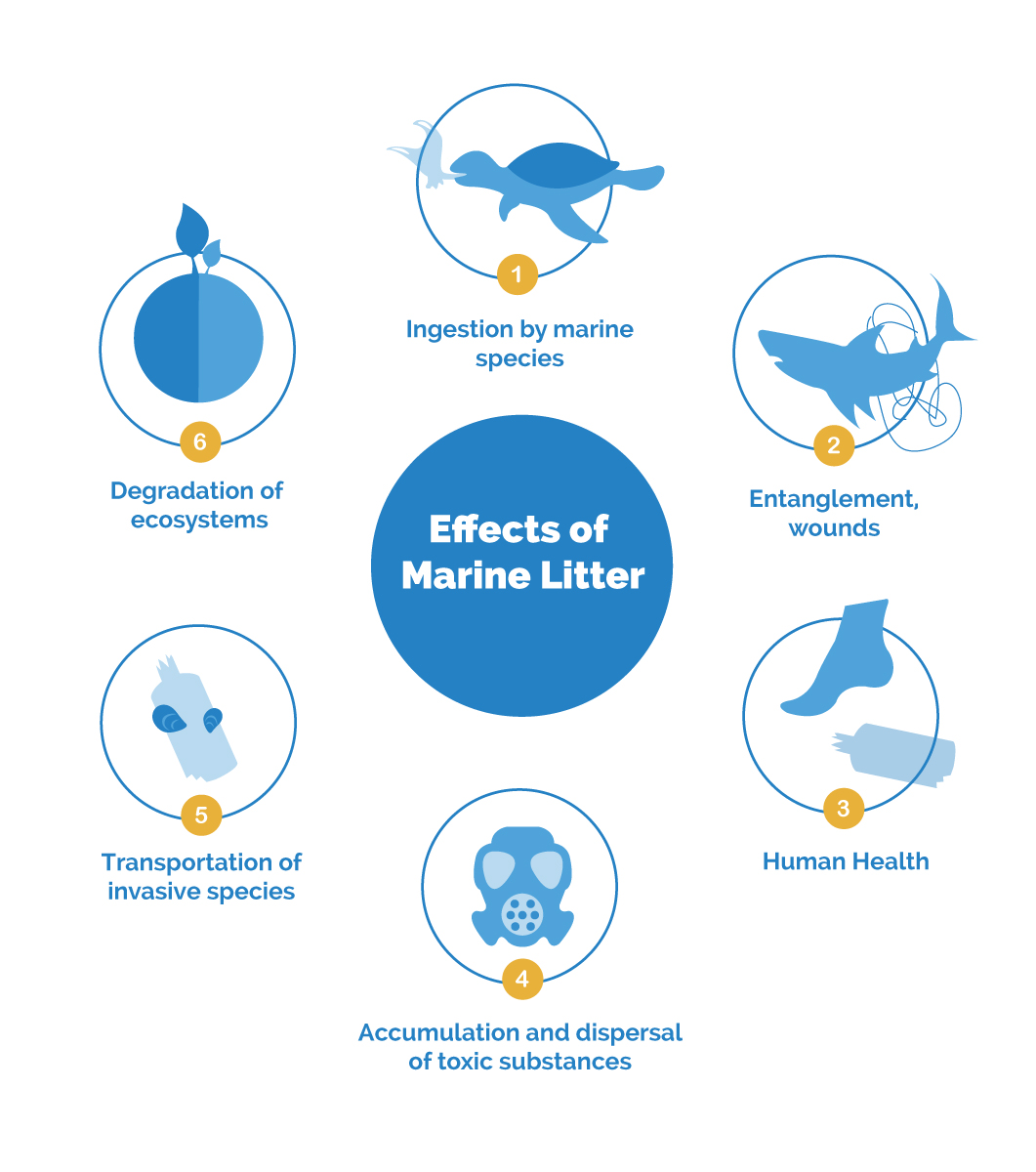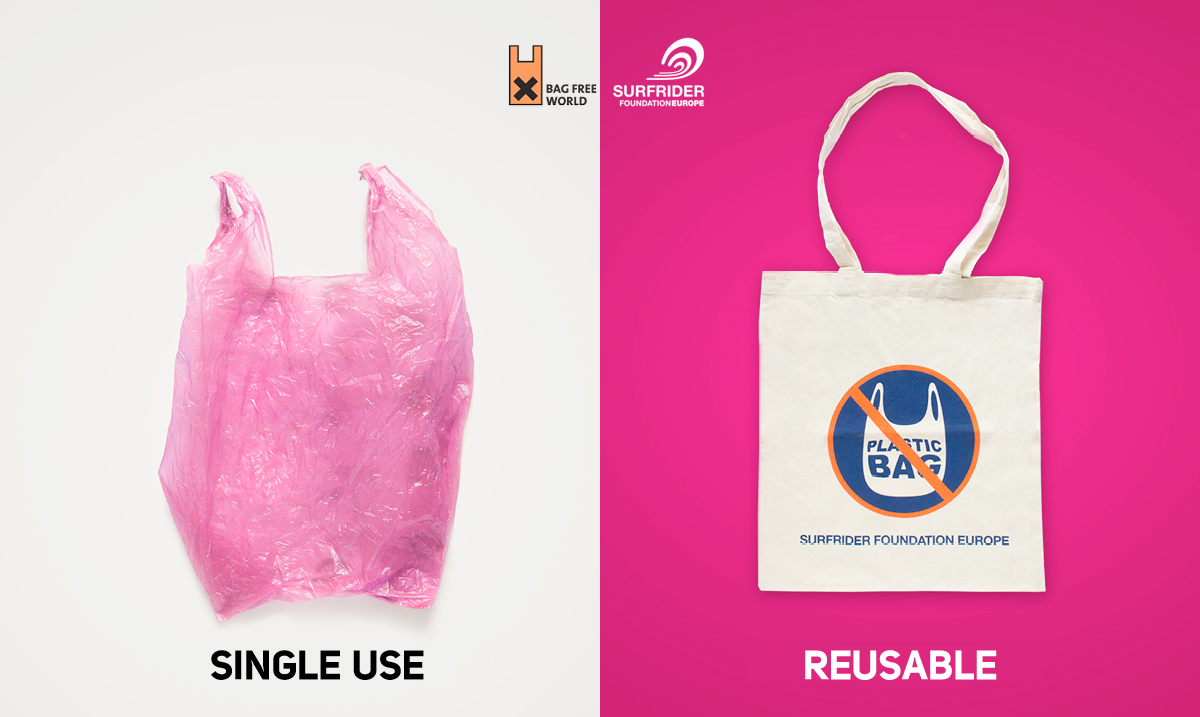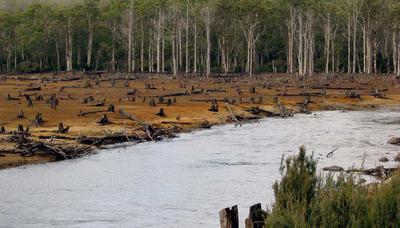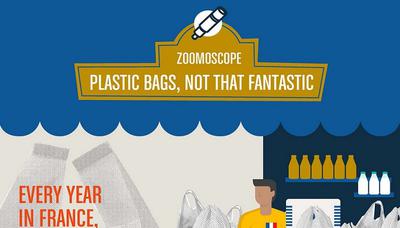No to plastic bags
Plastic bags affect our environment and in particular the aquatic environment significantly.
What are the impacts? What can we do to improve the situation?
Introduction
What is it about?
The first plastic bags appeared in 1957 in the United States. At that time, these plastic bags had no handles. It was only in the 1960s that they took the shape that we know today. In the 1970s, the production of plastic bags exploded with the discovery of a cheap manufacturing process. Shopkeepers were then able to hand out free bags to their customers. Plastic bags have since then been successful thanks to their lightness and resistance, and have become a must-have item in our daily lives.
Single use plastic bags are generally made of polyethylene, a material derived from petroleum. Today, different types of single-use plastic bags exist, but all have negative effects on the environment:
→ Oxo degradable bags: these bags are made of plastic that disintegrates into plastic micro-particles under the effect of water and heat in the oceans.
→ Polyethylene bags: these bags are neither recyclable nor biodegradable. They are usually landfilled or incinerated, generating greenhouse gas responsible for climate change.
→ Biodegradable bags: these bags degrade in an industrial processing environment, not in the environment. These bags must then be properly sorted, collected and processed to make compost.
→ ‘Bio-based’ bags: These bags are made from plant materials (corn starch, sugarcane etc.). Some are compostable but all also include oil-based plastic.
Click here for the infographic Plastic bags, not that fantastic
The life cycle of plastic bags in Europe
100 billion bags are used in Europe every year, it represents 190,000 bags used every minute. Most of these bags are only used once. If the situation remained the same, there would be 66.5 million tons of plastic bags in 2020! Some European countries consume far more plastic bags than others.
Most of these bags end up in the ocean. A very small part of those plastic bags is actually collected for recycling and 8 billion plastic bags are found in the natural environment in Europe every year. Because of their light weight, they are carried by the wind and rivers and end up in the oceans where they remain for centuries.
The effects of plastic bags on the environment
The plastic bag lifecycle, from the drop of oil to your plate, Surfrider Foundation Europe
What are the solutions against single-use plastic bags?
To limit the negative effects of plastic bags on the environment, there are several solutions to the problem at source:
1. First, European countries can ban single-use plastic bags in all shops or they can charge them
A 2015 EU directive gives the possibility for EU Member States to ban single-use plastic bags and requires them to apply one or both of the following measures:
→ Either, a reduction for single use plastic bags’ consumption to 90 bags per person per year by 2020 and to 40 bags by 2026
→ Or, ending the distribution free of charge of plastic bags by 2019
Ban the bag, Surfrider Foundation Europe
Several European countries have already implemented different national laws to reduce their plastic bags’ consumption such as Italy in 2011 or France as from 2016.
2. Using reusable bags is the best solution to protect the environment.
→ Biodegradable disposable bags: These bags cannot degrade in the environment and resources have been wasted to produce these bags while they will only be used a few minutes.
→ Paper bags: less polluting when discarded into the environment, they still require a lot of resources, especially water, to be produced for a very short use.
→ Reusable Plastic Bags: even if they have adverse consequences if disposed of in the environment, reusable plastic bags can be used many times before being recycled.
→ Reusable fabric bags, baskets, shopping trolleys and tote bags: these alternatives are the most appropriate and environmentally friendly, although their environmental impact will depend on their production (growing of crops, etc.).
3. Reusing plastic bags as much as possible to reduce their environmental impact.
4. To go further, you can actively take action and ask your shopkeeper to commit to no longer distribute single use plastic bags to its customers and to sign the Charter of Shopkeepers of Surfrider Foundation Europe.
Interested? More information here !
